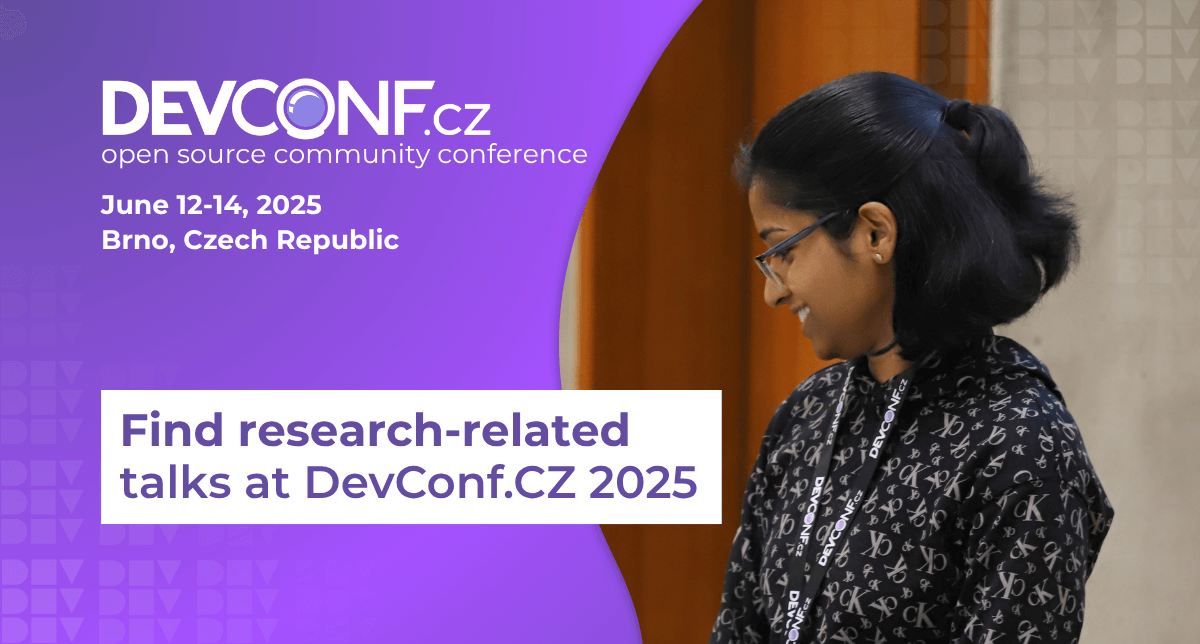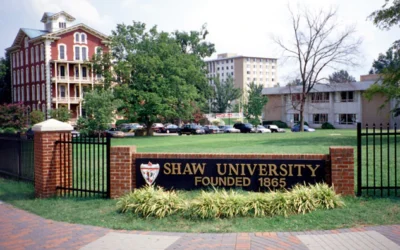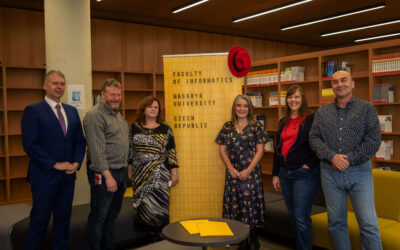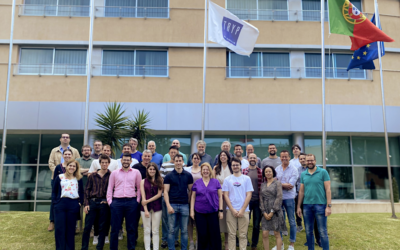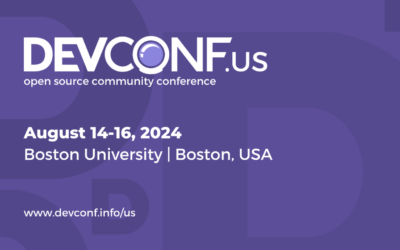It’s that time of the year again! DevConf.CZ, the annual, free, Red Hat-sponsored technology conference for users, operators, administrators, and contributors to free and open source technologies, will be held June 12-14 in Brno, Czechia. If you’re looking for research-related presentations in AI, edge, cryptography, and more, this post will be your guide, whether you’re attending virtually or in person. But if you want to swap candy with attendees from around the world (see below), you’ll need to get to the Faculty of Information Technology at Brno University of Technology (FIT BUT). Either way, register for DevConf.CZ ASAP to ensure your place.
Why attend DevConf.CZ?
DevConf.CZ is the biggest event for developers, administrators, and users of Linux and open source in Central Europe. The annual event launched in 2009 and hasn’t missed a year since, going virtual from 2020-2022. DevConf has always been about open source and community projects, and it has a long tradition of being welcoming to everyone, including those who don’t usually attend conferences. Browse our curated list of research-related presentations, then preview the full DevConf.CZ schedule to see dates and times and find other great presentations.
Research-related presentations on AI, edge, research infrastructure, and cryptography
Thursday, June 12
Panel discussion—”AI Next Door”: Meet the Masterminds Shaping AI Innovation
Meet the representatives of various AI projects and initiatives from the region! Learn about Red Hat AI projects, customers leveraging AI for their solutions, and university activities shaping the AI future. Listen to the experts involved in global initiatives and the representatives of local efforts and communities.
- Patrik Plachy: Senior Solution Architect with focus on Red Hat AI portfolio
- Marek Grác: Senior Software Engineer and researcher with a focus on AI and Machine learning
- Vladimír Kadlec: Principal Data Scientist at Red Hat
- Karel Piwko: Senior Principal Software Engineer with focus on DevOps tools and practices enhanced by AI
- Tomas Tomecek: Senior Principal Software Engineer with focus on AI tools and AI enabled CI/CD tools
Friday, June 13
Processing TBs of Astronomy Data at Scale with the AC3 Horizon Research Project
Speakers: Ben Capper (Research Software Engineer, Red Hat) and Kateryna Romashko (Research Intern, Red Hat; Master’s Student, South East Technological University, Ireland)
Abstract: Processing astronomical data is becoming increasingly difficult as datasets grow to terabyte scale. Traditional methods require manual selection of processing tools and significant computational resources, making analysis slow and inefficient. Researchers need a more scalable, automated approach to handle diverse data formats and extract scientific insights faster. AC3, a Horizon Europe open source initiative, addresses this challenge by automating the integration and execution of multiple data processing applications. Instead of manually selecting tools, AC3 automatically chooses the best application based on the type of data received. These applications are containerized and deployed across cloud and edge environments, ensuring efficient resource use and reliable performance at scale.
AC3 is already being tested with real astronomical datasets from observatories like Roque de los Muchachos in collaboration with the University of Madrid. By simplifying large-scale data processing, AC3 makes it easier for scientists to analyze data more quickly and efficiently. Join us in Brno to explore how AC3 is transforming astronomy data processing and shaping the future of AI-driven cloud-edge infrastructures. (See also the presentation Seamless Multi-Cluster Networking: A Technology-Agnostic Network Operator for Kubernetes Federation on Saturday for more on the AC3 project.)
CODECO: AI-Driven Orchestration for Multi-Cluster Edge Deployment
Speakers: Dean Kelly (Associate Research Software Engineer, Red Hat), Alka Nixon (Associate Research Software Engineer, Red Hat), José Castillo Lema (Principal Software Engineer, Red Hat)
Abstract: With the development of next generation IoT services such as mobile IoT or an Internet of Nanothings (IoNT), novel environments must be researched to meet the demands of this ever-growing landscape. These new environments are expected to be highly mobile, involving small cell management and large-scale deployments. With the increase in service decentralization, edge computing and decentralized edge cloud computing architectures play a key role in the Edge-Cloud Continuum.
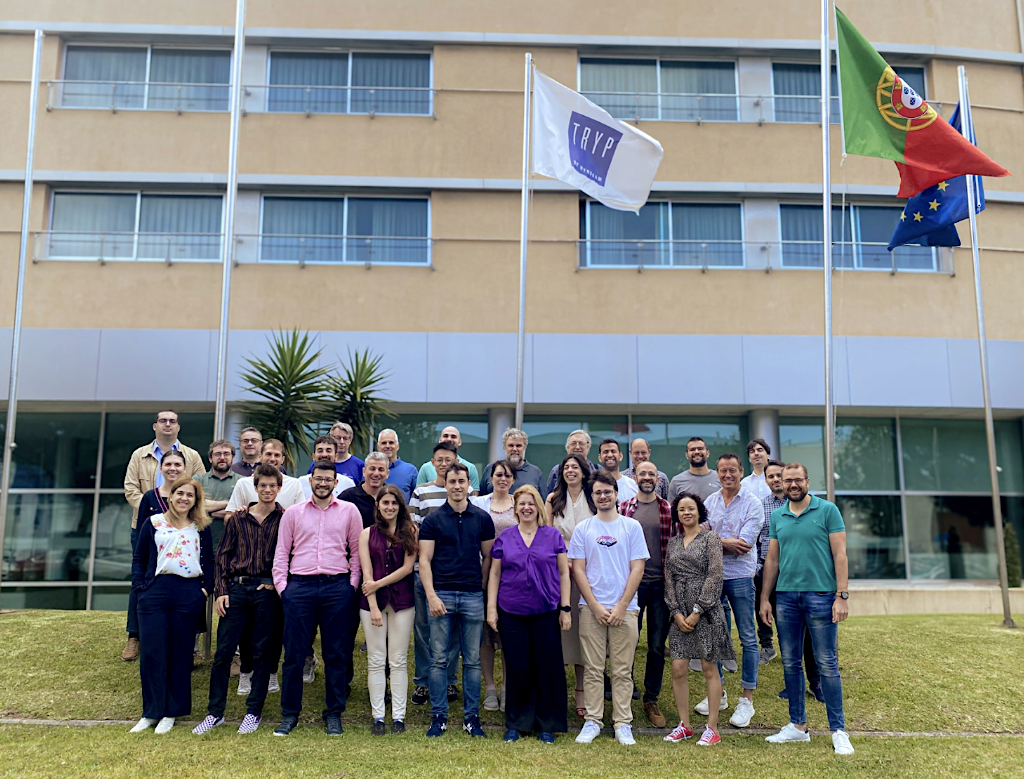
CODECO, an EU-funded open source research project, is a Kubernetes plug-in aimed at optimizing application deployment onto edge devices through cognitive and cross-layer orchestration. By leveraging AI-driven decision making, CODECO significantly improves deployment efficiency across the edge. This is achieved through Automated Configuration Management (ACM) coupled with Open Cluster Manager (OCM), which utilizes AI-generated recommendations from the Privacy-preserving Decentralized Learning and Context-awareness (PDLC) component. These recommendations are based on real-time resource metrics collected from available edge clusters, guiding the optimal deployment of applications to the most suitable edge cluster. Additionally, ACM offers a user-friendly interface, allowing users to easily deploy, monitor, and manage their applications.
This talk targets stakeholders keen on advancing both AI Edge-Cloud orchestration. Our attendees will have the opportunity to understand CODECO’s principles, objectives, key research contributions, open source toolkits, AI prediction mechanisms, and training resources through a use case focused on decentralized, wireless AGV Control for flexible factories, including a demonstration of how an application is deployed at optimal performance locations. Finally, we’ll discuss how the project and community can identify future improvements and contribute to the end goal of redefining the Edge-Cloud Continuum.
Speakers: Sahana Prasad (Senior Software Engineer, Red Hat), Nicola Tuveri (Doctoral Researcher, Tampere University, Finland), Akif Mehmood (Researcher, Tampere University), Francesco Rollo (Researcher, Tampere University)
As post-quantum cryptography (PQC) continues to evolve, ensuring a smooth and adaptable transition for end users, developers, and system administrators remains a top priority. Building on discussions from the last DevConf and the latest NIST recommendations, this session presents recent updates in the Fedora ecosystem with cryptographic components, including crypto-policies, demonstrating real-world PQC integration.
Our live demo will showcase a familiar user experience—a routine Firefox browsing session that seamlessly incorporates PQC. By inspecting the security tab when connecting to a web server, we illustrate how the user experience remains intentionally “boring,” signaling a successful, non-disruptive deployment of advanced cryptographic protocols. Beneath this simplicity, however, lies a powerful infrastructure of client-side and server-side components. Beyond the demo, we’ll dive into the experience of writing OpenSSL Providers in Rust and explore how open-source efforts like Kryoptic can be customized to build experimental PKCS#11 soft-tokens, offering valuable tools for developers and security researchers.
On the client side, we employ a nightly build of Firefox enhanced with PQC authentication and key exchange capabilities, made possible through Qryoptic, a Rust-based soft-token derived from the Kryoptic project, loaded alongside Firefox’s default NSS soft-token. On the server side, we leverage vanilla nginx running over OpenSSL 3.2 with our Aurora provider, a rust written OpenSSL Provider designed to boost cryptographic agility by allowing flexible backend implementations for PQC primitives.
Concluding the session, we’ll discuss the broader methodology behind these efforts and how shallow loadable modules can empower users, sysadmins, developers, and cryptographers alike to achieve greater flexibility and security in a post-quantum world. (This presentation is related to the EU-funded QUBIP project.)
Saturday June 14
AI-Driven Smart Farming Optimisation in the Green.Dat.AI Data Space
Speaker: Ben Capper (Research Software Engineer, Red Hat)
Abstract: Traditional farming practices often struggle with inefficiencies, such as over-fertilization, delayed pest detection, and reactive soil management, leading to reduced yields and environmental impact. AI-ready data spaces can transform agriculture, as shown by the Horizon Europe Green.Dat.AI research project’s smart farming optimization pilot, which enables secure data exchange and real-time analytics via AI services. By integrating satellite imagery, drones, and in-situ sensors, the pilot delivers precision fertilization, early pest detection, and predictive soil health assessments.
Key innovations such as federated learning for privacy-preserving edge AI training, digital twins for optimized farm management, and anomaly detection for proactive decisions are harnessed within MyFarm, a widely used Slovenian platform supporting data-driven decision making for farmers and advisors. Attendees will gain insights into the technical and practical aspects of implementing AI-driven solutions in agriculture, including challenges, best practices, and future opportunities for innovation.
Speaker: Colm Dunphy (Senior Manager, Global Engineering-Emerging Technologies)
These are the first steps in extending the MOC-A into Europe.
Abstract: In 2024, inspired by the Mass Open Cloud (MOC), and in collaboration with the MOC Alliance (MOC-A), Red Hat Waterford and the Walton Institute at SETU collaborated and partnered in establishing an experimental cloud for researchers, staff, and students in both organizations. These are the first steps in extending the MOC-A into Europe. Already, this private/public sector collaboration has created a community of new OpenShift and RHEL users with bare metal access. It has been made possible by recycling a supercomputer, installed in the liquid-cooled Walton datacenter, with operations provided by SETU, tech support for the ops team provided by Red Hat, and initial testing by the RH-OCTO team in Waterford. Positive interest around the project has attracted additional infrastructure in the form of storage funded by SETU and an IBM Z LinuxONE mainframe.
Do you need access to OpenShift on RHEL? Join us in Brno for a demo and to learn more about the current configuration, current and future users and usage, approaches to users and identity, VMs, fine tuning, and future plans for growth and funding.
Extending clusters to the edge and far edge with bootable containers
Speaker: Clodagh Walsh (Associate Research Software Engineer, Red Hat)
Abstract: Due to resource constraints, it may not be feasible to run a kubelet and its dependencies on an edge device to act as a fully fledged Kubernetes node. This session explores how the bootc and virtual kubelet projects can be combined to create a lightweight solution extending clusters to the edge and far edge.
Bootable containers, enabled by the bootc project, follow OCI principles to create bootable images suitable for a range of systems and architectures. Bootable containers simplify device management through rollbacks and automatic updates. By implementing a virtual kubelet provider for bootc managed devices, workloads can run natively on edge devices leveraging any specialized hardware without the overhead of a kubelet and container engine.
This session is of interest to cluster administrators, particularly those who are seeking innovative solutions to manage edge devices. It presents an application of bootable containers and the bootc project, showcasing it alongside familiar cloud native tools. This work is part of the P2CODE project funded by the Horizon Europe research programme.
Seamless Multi-Cluster Networking: A Technology-Agnostic Network Operator for Kubernetes Federation
Speaker: Ryan Jenkins (Associate Research Software Engineer, Red Hat)
Abstract: As organizations scale their Kubernetes deployments across multiple clusters, seamless inter-cluster communication becomes a critical challenge. Traditional approaches rely on complex service meshes, VPNs, or manual configurations, making them difficult to manage and scale. To address this, we have developed a technology-agnostic Network Operator that automates federated network configuration in Kubernetes, enabling secure, application-level connectivity across clusters.
Our operator currently integrates with Skupper, but it is designed to be extensible to support other networking technologies such as Submariner and SD-WAN, providing flexibility based on deployment needs. This talk will explore how the operator simplifies multi-cluster networking by dynamically provisioning and managing inter-cluster service networks, handling topology changes, ensuring fault tolerance, and reducing operational overhead. Additionally, we will showcase its application in the real-world AC3 EU project, where federated Kubernetes infrastructure was essential for enabling distributed workloads across multiple regions while maintaining security and performance, directly supporting the project’s goals.
Attendees will learn best practices for automating federated Kubernetes deployments, key design decisions behind our operator, and lessons from deploying it in production environments. Whether you’re managing hybrid cloud architectures, multi-region applications, or looking to simplify service-to-service connectivity across clusters, this session will provide valuable insights into the future of federated Kubernetes networking.

Candy Swap
On Friday afternoon in the Students Club, Red Hat Principal Software Engineer and home automation enthusiast Vadim Rutkovsky hosts the annual candy swap, where you can share candy from your home country or hometown and try candies brought by other participants. As Vadim explains, “Bring a candy, eat a candy. Sweetest DevConf meetup since like forever.”
